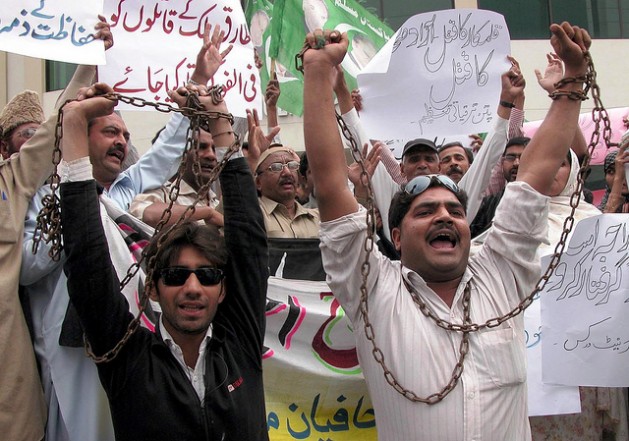Journalists Face Unprecedented Violence

UNITED NATIONS (IPS): There has never been a time more dangerous to be a journalist than today. On an average week, one journalist gets killed, according to UNESCO, and the pace of these attacks keeps increasing.
“Journalists are the people who run out when a bomb has gone off and pull out their cellphone, but they are also the people who dig through court records everyday trying to uncover corruption — and for that they are being murdered around the world” said Robert Mahoney, Deputy Executive Director of Committee to Protect Journalists (CPJ) here Monday at a panel discussion on the safety of journalists in conflict zones.
“These are the unsung heros who everyday try to put into practice what we at the UN defend.” said Mahoney.
Yet impunity for crimes against journalists remains rampant: in 95 percent of the cases perpetrators escape justice.
Often, UN resolutions are used as excuses by governments to criminalize journalists, said Quinn McKew, Deputy Executive Director of human rights organisation Article 19.
With increasing frequency, journalists have been arrested for broadcasting dissent and protest, due to vague language and blurry definitions of extremism and terrorism, says McKew.
“One person’s ‘extremist ideology’ can be another person’s political difference”.
McKew cited The United Nations Global Counter-Terrorism Strategy resolution describing a terrorist act as activities aimed at “destabilizing legitimately constituted Governments” as easily re-defined by governments to violate journalists freedom of speech.
The rise of rogue non-state groups add new threats for journalists, as well as the digital landscape which has created new ways to track behaviours, making it easier for these groups to find and kill journalists, said Judith Matloff, Professor at the Columbia Graduate School of Journalism.
In addition to threats from governments and non-state actors, there is the “threat from within” the media industry, said award-winning independent journalist Anna Therese Day. The big news organisations that used to have foreign bureaus have been replaced by a cheaper option: freelance journalists.
”The switch to contracting labour may cut costs, but also cuts corners on safety,” said Day.
In this digital age we may be overwhelmed by information, but due to these risks journalists face, there is much left unknown.
For example, many journalists in Mexico have decided not to report on violence to save their lives, said Matloff, and since the journalism protection mechanism is run by the government, it can cut down on freedom of speech.
“Without information, without the right to gather news, everything else is undermined” said Mahoney.
The quality of journalism has a direct effect on big policy decisions around the world. To a surprising extent, leaders and government officials are largely dependant on indirect, third party information, often released by journalists, said McKew, “Poor decisions are being made because poor information is available.”
(Photograph: Journalists protesting against the killing of their colleagues in Karachi, Pakistan. Credit: Rahat Dar/IPS)
(INTER PRESS SERVICE)



